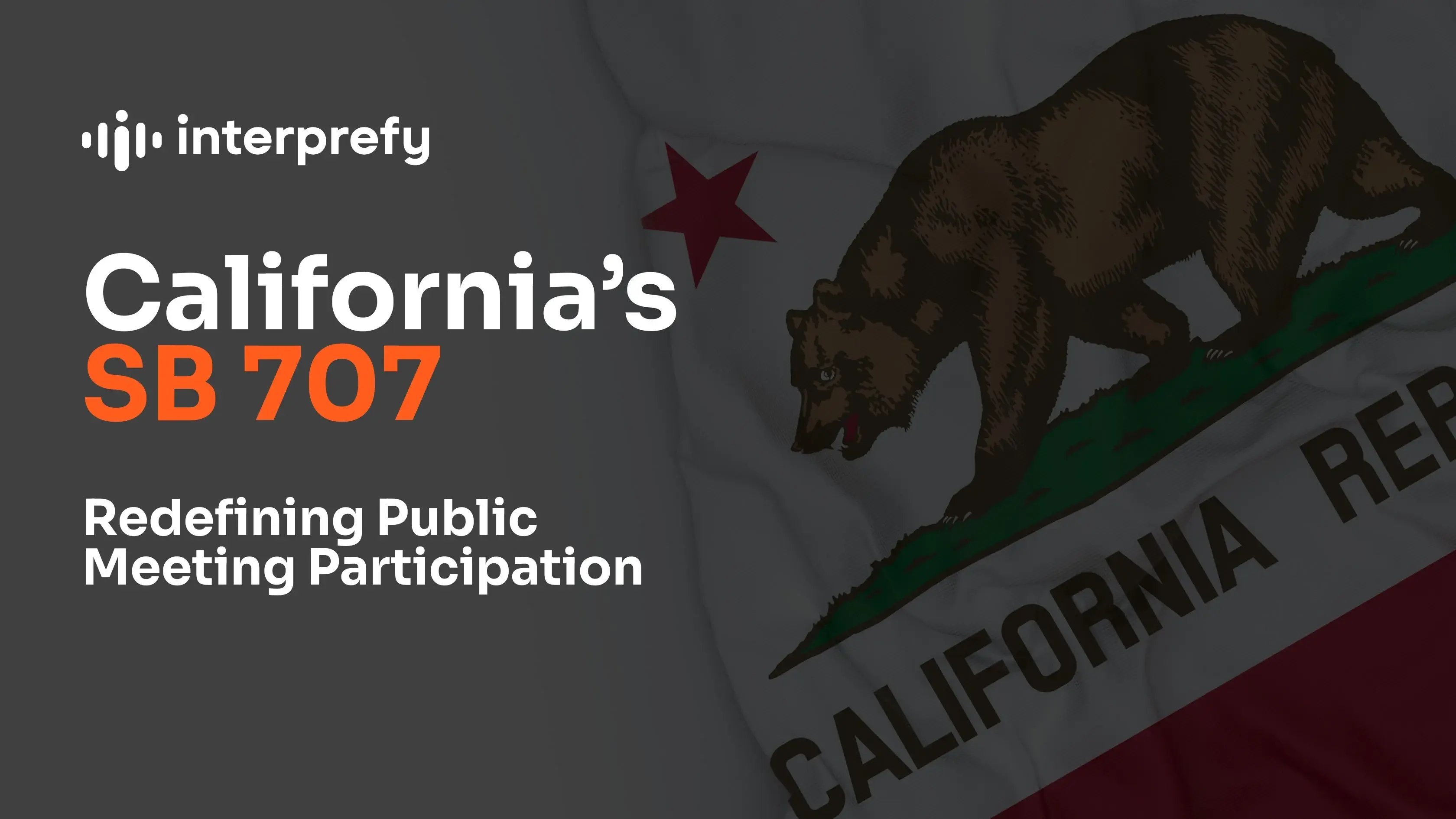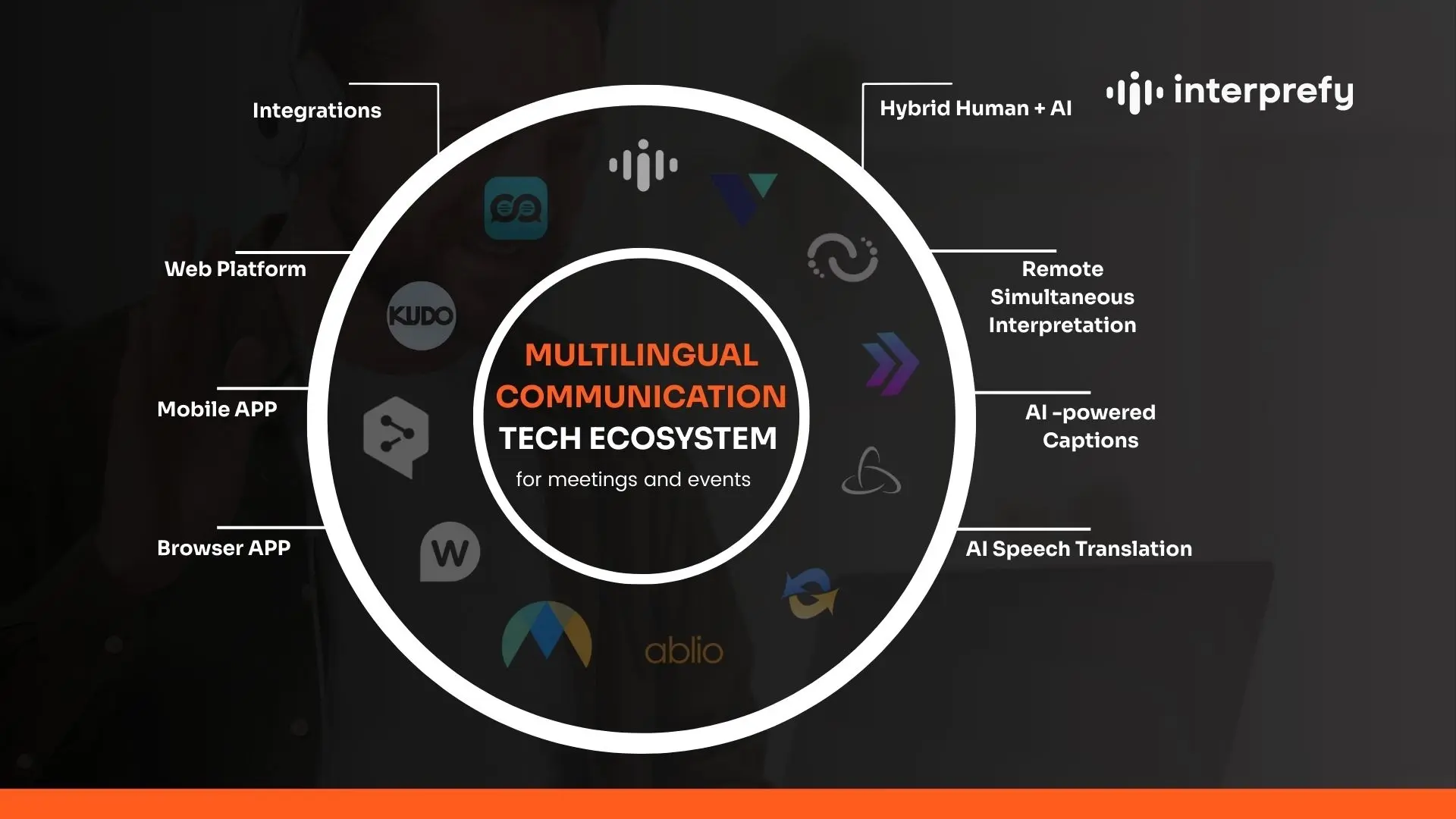Nowadays, as globalisation and the internet continue to expand, it is increasingly uncommon to host an event (whether a meeting, conference, corporate town hall, hybrid webinar, or summit) where everyone involved speaks the same language. On the contrary, most meetings, whether high- or low-stakes, bring together people from diverse linguistic and cultural backgrounds.
Yet many event organisers still default to a single language — often English — under the assumption that "most participants will understand it." This assumption is not only exclusionary for participants who may feel inhibited or lost in the conversation; it also carries hidden costs for organisations and the outcomes of the event. As language partners such as Interprefy have seen time and again, opting out of full multilingual support is, in reality, a business risk.










.webp)

 More download links
More download links



